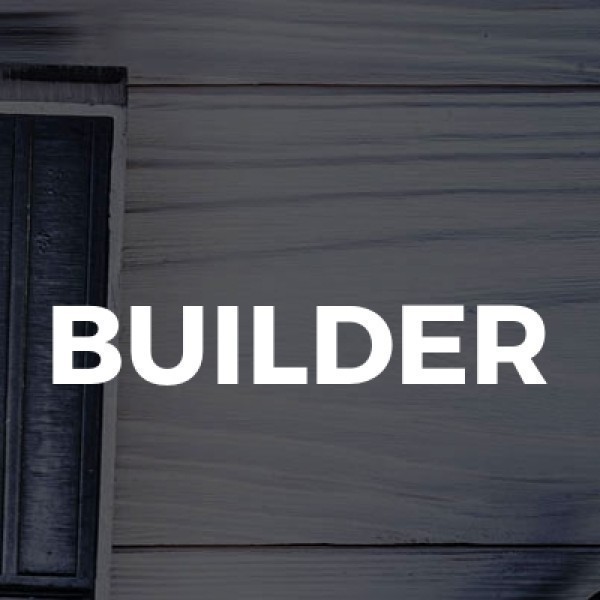Understanding Kitchen Installation in Bristol
Kitchen installation in Bristol is an exciting journey that transforms your culinary space into a functional and stylish hub. Whether you're renovating an old kitchen or setting up a new one, understanding the process and options available can make the experience smoother and more rewarding. In this article, we'll explore the ins and outs of kitchen installation, offering insights and tips to help you achieve the kitchen of your dreams.
The Importance of Planning Your Kitchen Installation
Planning is the cornerstone of any successful kitchen installation. It involves envisioning the layout, selecting materials, and budgeting. Start by assessing your needs and preferences. Do you need more storage? Are you looking for a modern or traditional design? Answering these questions will guide your decisions.
Consider the workflow in your kitchen. The classic 'work triangle'—the path between the sink, stove, and refrigerator—should be efficient. This layout minimises unnecessary movement and enhances functionality. Additionally, think about lighting, ventilation, and accessibility to ensure your kitchen is both practical and comfortable.
Choosing the Right Kitchen Design
Design is where your kitchen's personality shines. In Bristol, you'll find a plethora of design options ranging from contemporary to rustic. Each style has its unique charm and functionality.
For a modern look, consider sleek cabinets, minimalistic fixtures, and integrated appliances. If you prefer a traditional feel, opt for wooden finishes, classic tiles, and vintage accessories. Don't forget to incorporate your personal touch, whether it's a splash of colour or a unique backsplash.
Materials and Finishes: Making the Right Choice
Materials and finishes play a crucial role in the aesthetics and durability of your kitchen. Popular choices include wood, laminate, and stainless steel. Each material has its pros and cons, so weigh them carefully.
- Wood: Offers warmth and elegance but requires maintenance.
- Laminate: Affordable and versatile but may not be as durable.
- Stainless Steel: Durable and easy to clean but can appear cold.
Consider the finish of your cabinets and countertops. Glossy finishes reflect light and make spaces appear larger, while matte finishes offer a subtle, sophisticated look.
Hiring a Professional Kitchen Installer
While DIY projects can be rewarding, hiring a professional kitchen installer in Bristol ensures precision and quality. Professionals bring expertise and experience, handling everything from plumbing to electrical work.
When selecting an installer, check their credentials and reviews. A reputable installer will provide references and a portfolio of past projects. Discuss your vision and budget with them to ensure alignment. A good installer will offer suggestions and solutions, enhancing your kitchen's functionality and style.
Understanding the Installation Process
The kitchen installation process involves several stages, each crucial to the final outcome. Here's a brief overview:
- Demolition: Removing old fixtures and preparing the space.
- Plumbing and Electrical Work: Installing new pipes and wiring.
- Cabinet and Countertop Installation: Fitting the main components.
- Appliance Setup: Installing and testing appliances.
- Finishing Touches: Adding details like lighting and hardware.
Each stage requires careful attention to detail to ensure safety and quality. A professional installer will coordinate these tasks efficiently, minimising disruptions.
Budgeting for Your Kitchen Installation
Budgeting is a critical aspect of kitchen installation. Costs can vary widely based on the size of your kitchen, the materials chosen, and the complexity of the design. Start by setting a realistic budget that covers all aspects of the project, including unexpected expenses.
Consider prioritising essential elements like cabinets and appliances, and allocate funds accordingly. It's wise to have a contingency fund for unforeseen costs. Discuss your budget with your installer to ensure transparency and avoid surprises.
Cost-Saving Tips for Kitchen Installation
Installing a kitchen doesn't have to break the bank. Here are some cost-saving tips:
- Reuse and Recycle: Consider refurbishing existing cabinets or appliances.
- Shop Smart: Look for sales and discounts on materials and fixtures.
- DIY Where Possible: Handle simple tasks like painting or assembling furniture.
By being resourceful and strategic, you can achieve a beautiful kitchen without overspending.
Ensuring Quality and Safety in Kitchen Installation
Quality and safety are paramount in kitchen installation. Ensure that all materials and appliances meet safety standards. Proper installation of electrical and plumbing systems is crucial to prevent hazards.
Work with certified professionals who adhere to industry regulations. Regular inspections during the installation process can catch potential issues early, ensuring a safe and durable kitchen.
Maintaining Your New Kitchen
Once your kitchen is installed, maintenance is key to preserving its beauty and functionality. Regular cleaning and upkeep will extend the life of your kitchen.
- Cleaning: Use appropriate cleaners for different surfaces to avoid damage.
- Repairs: Address minor issues promptly to prevent them from escalating.
- Inspections: Periodically check for wear and tear, especially in high-use areas.
With proper care, your kitchen will remain a delightful space for years to come.
Frequently Asked Questions About Kitchen Installation in Bristol
What is the average cost of kitchen installation in Bristol?
The cost can vary significantly based on the size and complexity of the project. On average, it ranges from £5,000 to £15,000, but luxury installations can exceed this.
How long does a kitchen installation take?
Typically, a kitchen installation takes 2 to 4 weeks, depending on the scope of work and any customisations involved.
Can I install a kitchen myself?
While possible, DIY installation requires significant skill and knowledge. Hiring a professional ensures quality and compliance with safety standards.
What should I consider when choosing kitchen appliances?
Consider energy efficiency, size, and compatibility with your kitchen design. Look for appliances with good reviews and warranties.
How can I make my kitchen more eco-friendly?
Opt for energy-efficient appliances, sustainable materials, and LED lighting. Consider recycling and composting systems to reduce waste.
Do I need a permit for kitchen installation in Bristol?
Permits may be required for electrical and plumbing work. Check with local authorities or consult your installer for guidance.
Final Thoughts on Kitchen Installation in Bristol
Embarking on a kitchen installation in Bristol is a rewarding endeavour that enhances your home's value and functionality. By planning carefully, choosing the right design, and working with professionals, you can create a kitchen that meets your needs and reflects your style. Remember, a well-installed kitchen is not just a place to cook; it's a space where memories are made and shared. So, roll up your sleeves, embrace the process, and look forward to enjoying your new kitchen for years to come.
















